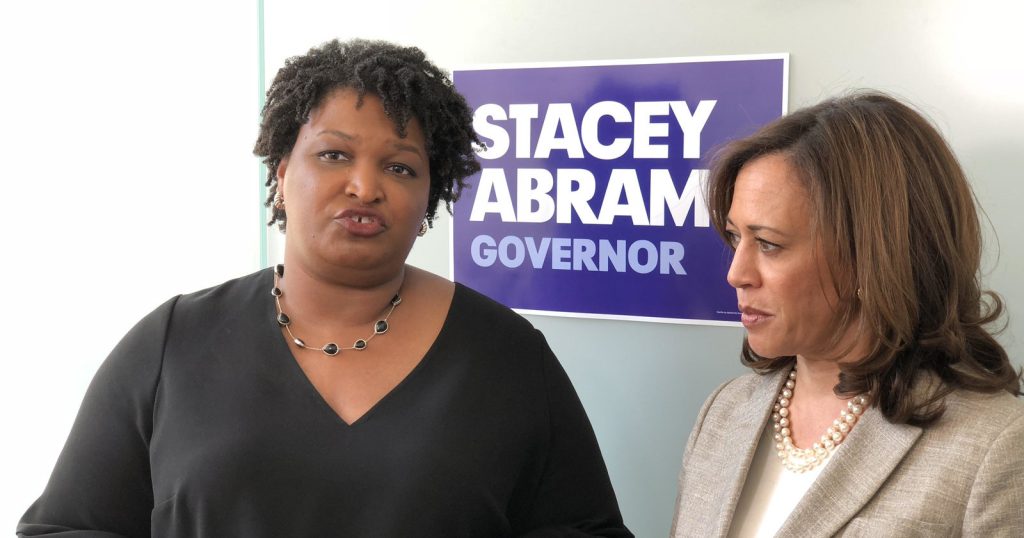
The New Georgia Project (NGP), a voter registration and advocacy nonprofit founded by former Democratic gubernatorial candidate Stacey Abrams, has officially shut down after more than a decade of operation marked by political influence, financial controversies, and multiple investigations.
In a statement released by its board of directors, the organization reflected positively on its legacy, saying it was “proud of the milestones we have achieved, the communities we have engaged, and the countless individuals whose lives have been strengthened by our work.” The statement made no mention of the ongoing legal challenges or state investigations that have surrounded the group in recent years.
Founded by Abrams in 2013, the New Georgia Project was initially hailed for helping register hundreds of thousands of new voters—particularly young and Black Georgians—contributing to increased turnout in the state’s pivotal 2020 elections.
However, the organization’s reputation has been clouded by allegations of financial mismanagement, internal disputes, and questions about its political activity. In recent years, the group has come under mounting scrutiny, culminating in several formal inquiries.
Earlier this year, the Georgia Senate launched a bipartisan investigation into the group’s operations, focusing on potential campaign finance violations and the alleged misuse of nonprofit funds. Lawmakers also examined whether NGP engaged in partisan political activity under the guise of nonpartisan voter advocacy—actions that could violate state and federal regulations.
According to Atlanta News First, the inquiry also looked into recent firings at NGP, which were reportedly linked to employees’ efforts to unionize.
In January, the Georgia Government Transparency and Campaign Finance Commission fined NGP $300,000 following a five-year probe. The commission concluded that the group had unlawfully raised and spent millions in an attempt to influence elections, in violation of its nonprofit status.
Investigators found that NGP received approximately $4.2 million in so-called “dark money” donations and spent at least $3.2 million on overtly political activities, including election ads and direct outreach in support of Democratic candidates.
The fallout led to the resignation of NGP CEO Francys Johnson, who had led the organization after Abrams formally distanced herself from it several years earlier.
“This is a nonprofit that lost its mission and became a political machine,” said one Republican member of the Senate investigation panel. “It reflects the broader lack of transparency and accountability across Abrams’ political network.”
Abrams, who ran unsuccessfully for Georgia governor in 2018 and 2022, has long argued that Republican-led efforts in the state amount to voter suppression—an accusation that fueled her rise as a national Democratic figure and helped drive support for her affiliated organizations.
Yet both NGP and its sister organization, Fair Fight Action, have faced increasing scrutiny over their spending practices and political affiliations.
Abrams’ involvement with another nonprofit, Power Forward Communities, has also drawn national attention. The group, where Abrams serves as senior counsel, received a $2 billion grant from the Environmental Protection Agency in 2024 under the Biden administration’s Greenhouse Gas Reduction Fund.
Earlier reporting from The Washington Free Beacon revealed that Power Forward Communities had reported just $100 in revenue during its first three months before securing the multi-billion-dollar federal grant.
EPA Administrator Lee Zeldin, appointed under the Trump administration, has since launched a review of the grant program, calling the funding allocation an example of “waste and abuse” within President Biden’s climate agenda.
“It’s extremely concerning that an organization with only $100 in revenue last year was awarded $2 billion in taxpayer funds,” Zeldin said. “That’s 20 million times its reported revenue.”
Back in Georgia, the New Georgia Project’s closure arrives as state lawmakers continue revisiting campaign finance laws and election oversight, amid a broader national debate over voter access and election integrity.
While the organization credited itself with expanding civic engagement, critics argue that its shutdown underscores long-standing concerns about political bias and financial accountability.
“This is a long-overdue reckoning,” said Georgia State Senator Randy Robertson. “The New Georgia Project was meant to help people vote. Instead, it became a political slush fund that eroded trust in our elections.”
Leave a Reply